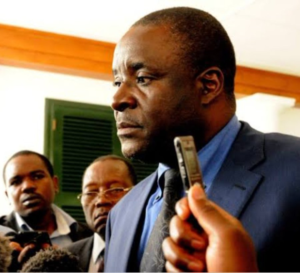US TIGHTENS SANCTIONS ON ZIMBABWE AMIDST NATIONAL RECONCILIATION EFFORTS

In a move that has sent ripples across the international stage, the United States has announced a further tightening of sanctions on Zimbabwe, juxtaposing the African nation’s ambitious efforts to heal from its tumultuous history. This development unfolds as Zimbabwe embarks on a historic initiative led by the National Council of Chiefs and Deputy President Chief Fortune Charumbira, aiming to address the scars left by the Gukurahundi massacres – a somber chapter in the country’s post-independence era marked by widespread atrocities between 1982 and 1987 in Matabeleland North and South, as well as parts of the Midlands.
The outreach program spearheaded by the National Council of Chiefs, a significant step toward national healing and reconciliation, seeks to confront these painful memories through a series of public hearings. These gatherings are intended as platforms for survivors, victims’ families, and affected communities to share their stories, fostering a collective process of documentation, acknowledgment, and ultimately, healing. The initiative is a bold move to face the nation’s past head-on, aiming to pave a path towards genuine reconciliation and unity.
However, the US’s decision to impose further sanctions on Zimbabwe at this critical juncture raises complex questions about the timing and implications of such measures. The sanctions, traditionally justified by allegations of human rights violations and the undermining of democratic processes, could potentially impact Zimbabwe’s economic recovery and its ability to address internal challenges, including the reconciliation process.
This decision underscores the intricate dynamics of international diplomacy and the challenges nations face in balancing internal governance with external pressures. The US asserts that its sanctions are targeted at individuals and entities believed to be responsible for undermining Zimbabwe’s democratic processes and perpetuating human rights abuses. Nonetheless, the broader implications of these sanctions may inadvertently affect the country’s economic stability and the well-being of its citizens, potentially hindering the reconciliation efforts.
The outreach program led by the National Council of Chiefs represents a critical step in Zimbabwe’s journey towards healing and reconciliation. By acknowledging the atrocities of the Gukurahundi and providing a platform for those affected to share their experiences, Zimbabwe demonstrates a commitment to confronting its past and forging a united future. This initiative, deeply rooted in the country’s rich historical tapestry and led by figures of significant cultural authority, symbolizes a concerted effort to heal the wounds of the past and build a foundation for a more inclusive and peaceful society.
As the US tightens its sanctions on Zimbabwe, the international community watches closely, evaluating the impacts of these measures on the country’s reconciliation efforts and broader economic and social well-being. The situation presents a complex tableau of challenges and opportunities for Zimbabwe, as it strives to navigate the path of healing and development amidst international scrutiny.
The unfolding scenario offers a poignant reminder of the delicate balance between sovereignty, internal healing processes, and the role of international actors in influencing the course of a nation’s history. As Zimbabwe embarks on this ambitious journey of reconciliation, the global community’s support – or lack thereof – will undoubtedly play a critical role in shaping the country’s future, highlighting the interconnected nature of global diplomacy, national healing, and the pursuit of justice and peace.





